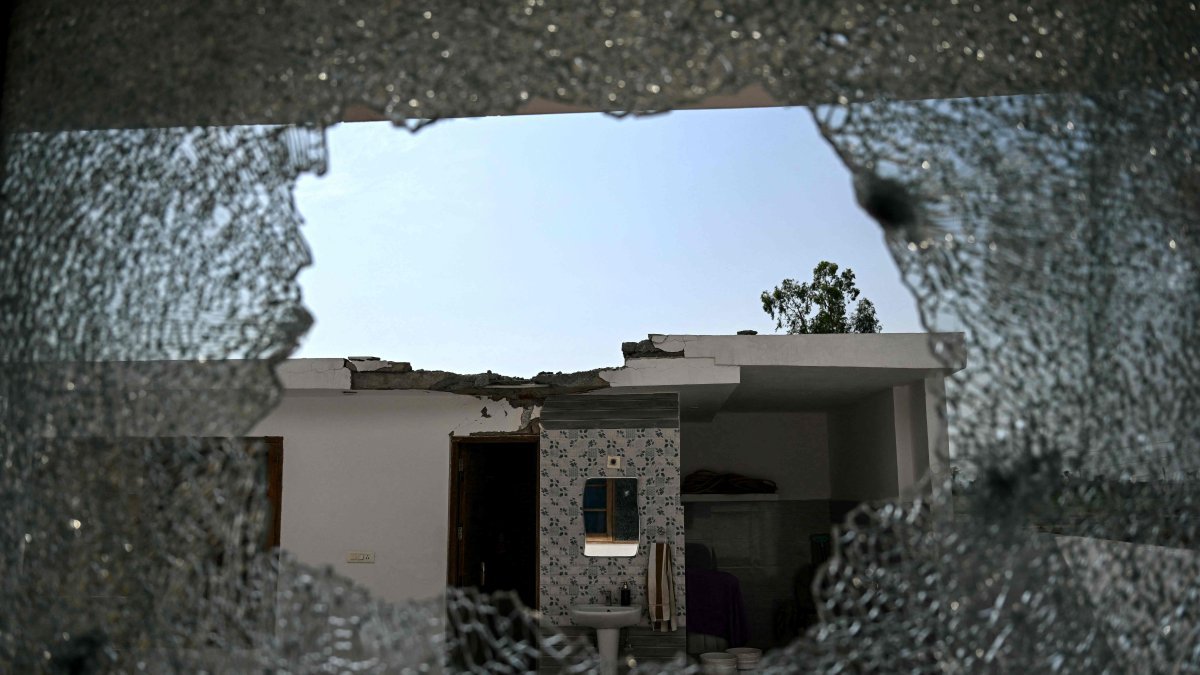The recent near-war situation between India and Pakistan, which fortunately resulted in a ceasefire, must send an alarming signal across the whole world; that two nuclear power states can come this close in a confrontation.
Out of the two states involved, one clearly violated the international law, breached the sovereignty of the other and emerged as an all out aggressor. While the other, saving its right of self defense, just retaliated. As far as the military parameters are concerned, the independent investigators can reach a better conclusion, but on the diplomatic front this confrontation was visibly a great blow to India’s narrative, specifically given its ‘perceived’ superior position in the global affairs.
From The Washington Post to the New York Times, western media outlets published the story of the crash of Indian fighter jets by Pakistan during this faceoff. This blow came about mainly as a result of the hyperbolic image of India being a global power that BJP-led government has created in the minds of its public during the past few years in power. Undoubtedly India has emerged as a global player primarily due to the size of its economy.
However, that’s not the only metric for a state to be considered a global power or regional hegemon, especially to the level of a bully.
Read More: Pakistan to India: Don’t Weaponize Water
Moreover, unlike the USA and Russia, India is surrounded by equally powerful and potent states like Pakistan and China. It’s easier said than done for India, in 2025, to breach its international boundary and easily get away with it. The recent standoff is a glaring example of that. Also, unlike the USA, India is not geographically disconnected with its rivals by a massive ocean. They are right at its border. And most importantly, both of them, Pakistan and China, are nuclear powers.
Despite these ground realities, the economic rise of India was accompanied by the RSS-led BJP’s long-dormant ambition of regional supremacy. Having that as a priority, this agenda has been actively promoted by the BJP-led government and primarily by the current Foreign Minister of India, S. Jaishankar.
Interestingly, it was done at the expense of diplomatic norms. The diplomatic front of India consistently exhibited the BJP mindset rather than that of India as a state. The very essence of diplomacy is to assure the fulfilment of the interests of the respective state, and not of a specific group of people.
Without any regard to this principle, S. Jaishankar consistently behaved like a typical BJP politician when in essence, he was a diplomat. He exhibited a false sense of presumptuousness when his state was not able to walk the talk. Since his appointment as the Foreign minister of India, he resorted to superciliousness and was often unnecessarily rude to the international media.
Read More: India’s ‘New Normal’ Unacceptable: Pakistan
Instead, he could just behave like a diplomat. The false perception of his state being a ‘regional hegemon’ had deceived him so badly that he abstained from giving due consideration to neighboring states like Pakistan; as was at display when he refused to greet Pakistan’s Foreign Minister on the latter’s visit to India, against the established diplomatic ethos.
On the other side, the fact that Pakistan came clean from the FATF’s blacklist clearly shows the efforts of the state in distancing itself from a phased radical past few foreign policy miscalculations. Moreover, and most importantly, separate incidents require separate investigation and probe. Given that, Pakistan did offer India for an independent inquiry into the heinous Pahalgam attack.
Instead of taking this diplomatic opportunity, India suspended the Indus Water Treaty (IWT) of 1960 and attacked Pakistan, breaching the sovereign boundary of a sovereign state, killing its civilians. It continued attacking Pakistan with drones for the next two days until the latter chose retaliation, guided by the principle of self-defense. Both countries used advanced weaponry in this standoff and deaths were reported from both sides of the Line of Control (LoC).
To sum this up, given the lethality of advanced weapons, war is unconceivable in modern times. The diplomatic way is the only guarantor of avoiding military confrontation. However, this can be assured only if state leaders and other key stakeholders like media abstain from jingoistic policies, supremacy rhetoric, abide by the international law in letter and spirit, and focus on the prosperity and well-being of all people.
*The views expressed in this article are the author’s own and do not necessarily reflect the editorial policy of TDI.
Fakhar Bhatti
Fakhar Bhatti has a BS in International Relations from Bahria University, Islamabad. His research interests include diplomacy, international law, and human rights.



